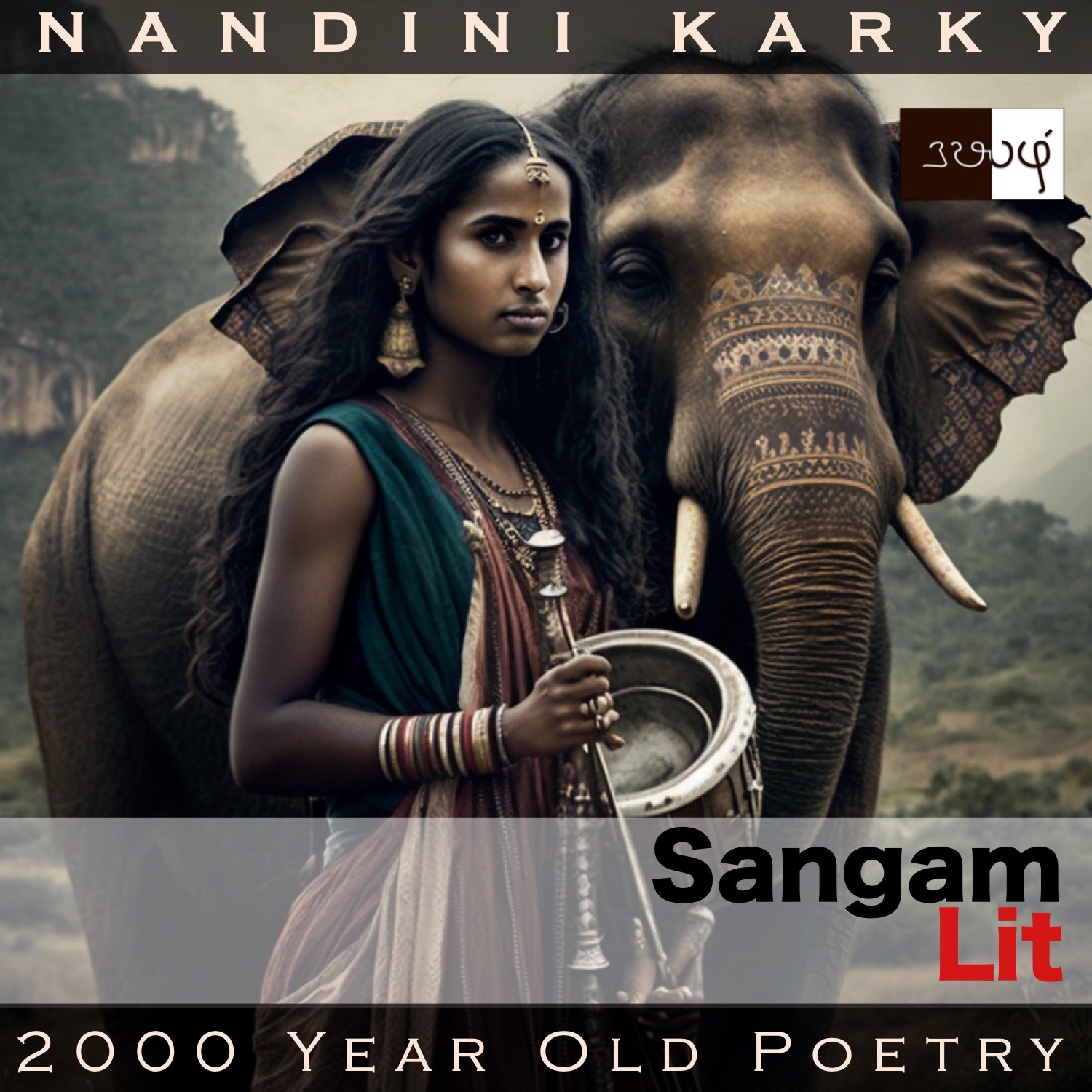Podcast: Play in new window | Download
Subscribe: Apple Podcasts | Spotify | Amazon Music | Android | iHeartRadio | TuneIn | RSS | More
In this episode, we observe a curious technique of rendering praise, as portrayed in Sangam Literary work, Puranaanooru 140, penned about the Velir King Naanjil Valluvan by the poet Avvaiyaar. The verse is situated in the category of ‘Paadaan Thinai’ or ‘King’s praise’ and sketches the story of what was sought and what was got.

தடவு நிலைப் பலவின் நாஞ்சில் பொருநன்
மடவன், மன்ற; செந் நாப் புலவீர்!
வளைக் கை விறலியர் படப்பைக் கொய்த
அடகின் கண்ணுறைஆக யாம் சில
அரிசி வேண்டினேமாக, தான் பிற
வரிசை அறிதலின், தன்னும் தூக்கி,
இருங் கடறு வளைஇய குன்றத்து அன்னது ஓர்
பெருங் களிறு நல்கியோனே; அன்னது ஓர்
தேற்றா ஈகையும் உளதுகொல்?
போற்றார் அம்ம, பெரியோர் தம் கடனே?
Again, we get to meet with that fascinating female poet from Sangam times, Avvaiyaar. This poet’s words about the king can be translated as follows:
“The lord of Naanjil, a mountain country filled with curving jackfruits, must be foolish indeed, O virtuous poets! I sought few grains of rice to be used as relish when cooking the greens that were plucked by bangle-clad dancing maiden in the village. But using a different scale for his patronage, to uphold his name, he rendered unto me a huge elephant, akin to a hill filled with long and winding mountain paths! Could there ever be such a disproportionate generosity? Aren’t the great supposed to know what’s to be done and what’s not, as they exercise their duty?”
Time to delve into the nuances. The poet starts with a crisp description of the king’s mountain country – Naanjil, talking about how sweet jackfruits abound on the curving branches of many a tree. Then, she makes a surprising declaration that the king must be a fool, saying this to a group of assembled renowned poets. As we are wondering about this striking statement, she goes on to explain the reason why, saying she had gone to the king seeking a few grains of rice to be used as relish when cooking green leaves plucked from the village fields. When she asked him for this, instead of giving that, the king seems to have given her, a mound-like elephant. She concludes with seemingly biting questions about whether there could ever be such a thoughtless act of generosity, and also, shouldn’t people who are referred to as great know what’s the right thing to do!
While at first glance, it seems as if the poet is bashing the patron for giving her an elephant instead of grains of rice, actually it’s an indirect praise for the enormous act of charity by this king. Probably those good poets around there sat around talking of how King Naanjil had given them this and that and praised him to the skies. This female poet decides to do one better than all of them. Using a stunning modern screenplay technique, she portrays the hero as negative but makes the audience wow at his positive qualities through that portrayal. This reminds me of another Puranaanooru poem where the poet praises a king’s bravery in the battlefield by talking disparagingly of his broken weapons lying in the blacksmith’s shed. Through this ancient verse, delighted to have grasped a unique stroke of this master poet from Sangam times in the way she etches a personality by saying the unexpected!




Share your thoughts...